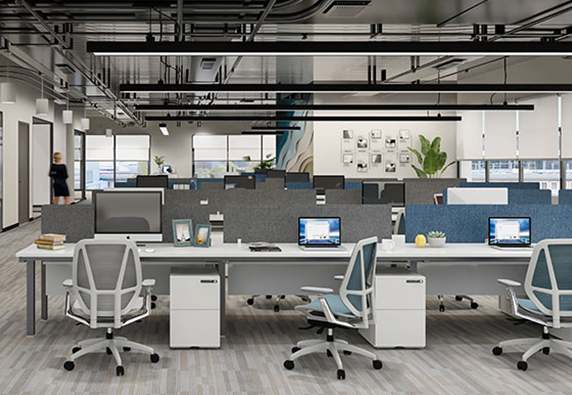
What is the Typical Height of an Office Desk?
The Importance of Ergonomics in Office Settings

In today's fast-paced office world, we spend most of the day in the office, so a good office environment is particularly important at present. Having a well-designed work space is conducive to the improvement of productivity and is also conducive to Our bodies are healthy, so we need ergonomics to enter our office environment.
What is ergonomics. In an office environment, one of the basic factors of an ergonomic office setup is the height of the desk. Next we'll explore typical desk heights and the importance of ergonomics in an office environment.
What is the Ideal Desk Height?
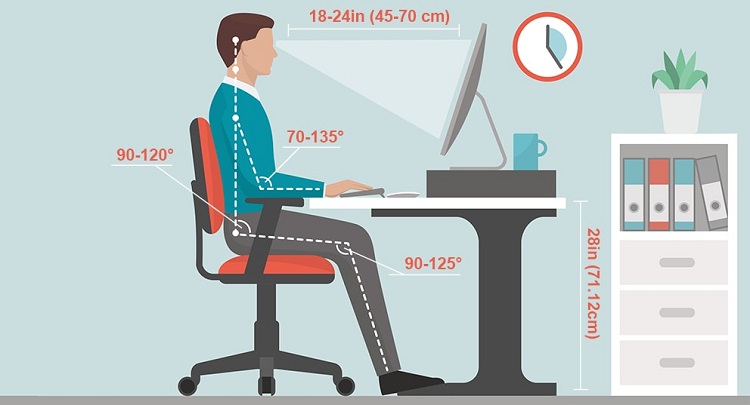
Typical heights for desks range from 28 to 30 inches (71 to 76 cm). This is not for everyone, and when we actually start shopping and designing, various factors must be considered. The height of the desk should match the height of the person using it to promote proper posture, which reduces the risk of musculoskeletal problems.
Factors to Consider for Desk Height

Height of the Individual: Everyone is different in shape and size, so there is no one-size-fits-all solution. A taller person will feel more comfortable using a taller table, while a shorter person will find a lower table more suitable for him. When we design and choose a table, we must take everyone's height into consideration. After all, our goal is to allow workers to maintain a comfortable posture to improve productivity.
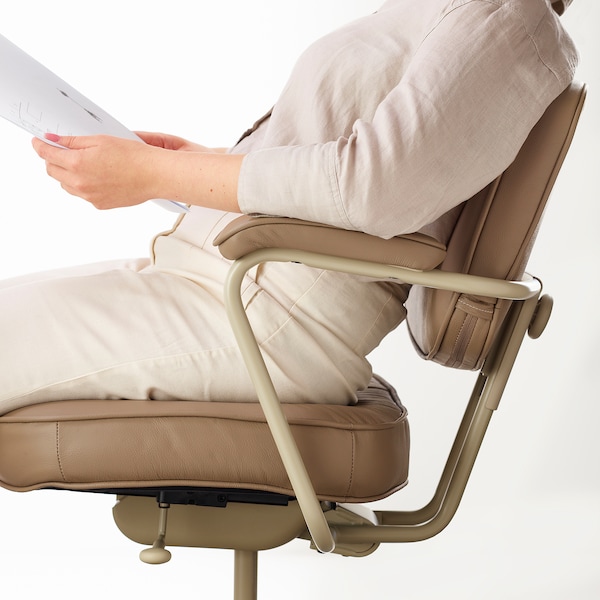
Chair Height: The height of the office chair is also a place where ergonomics can be used. The chair and the table need to work together, so after considering the height of the table, you also need to consider the height of the chair you want to match, so that the worker's knees can form a 90 Degree angle, and the feet are also in a flat state. This posture can promote blood circulation and reduce the probability of back pain.
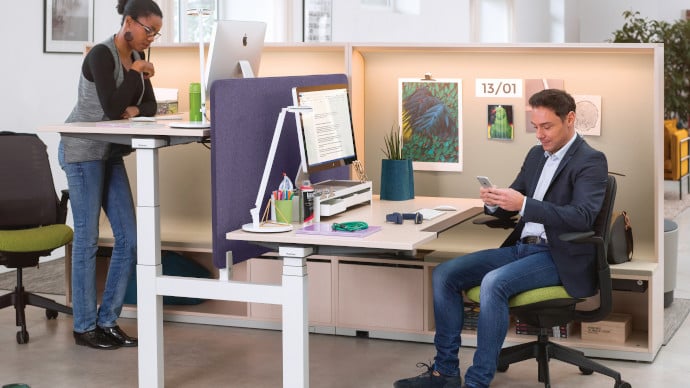
Type of Work: The nature of the work is also one of the factors that determine the height. If the worker needs to sit for a long time for a lot of writing and typing work, then a slightly lower desk height may be more suitable. If it involves work that sometimes requires standing , such as the nature of the work of the receptionist, which requires slightly higher tables, chairs and tables.
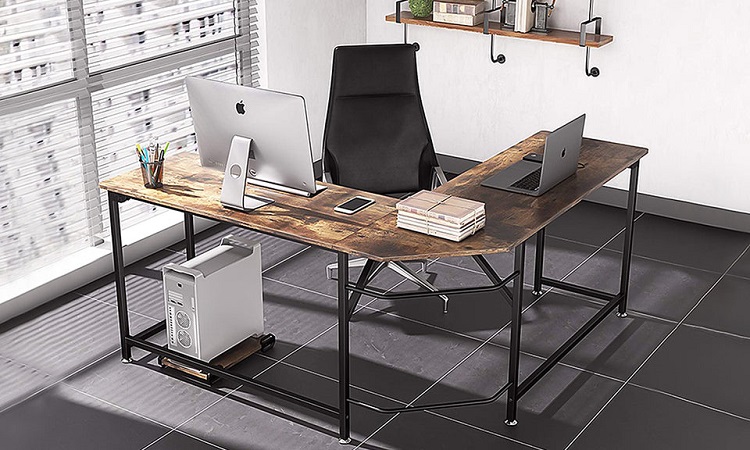
Monitor Placement: The things placed on the desk are also one of the criteria to consider. If the stand of the desktop computer is relatively high, the desk is too high and the worker needs to look up to see it. Therefore, we should make the top of the display screen at or slightly above the below eye level, which allows the neck and eyes to relax
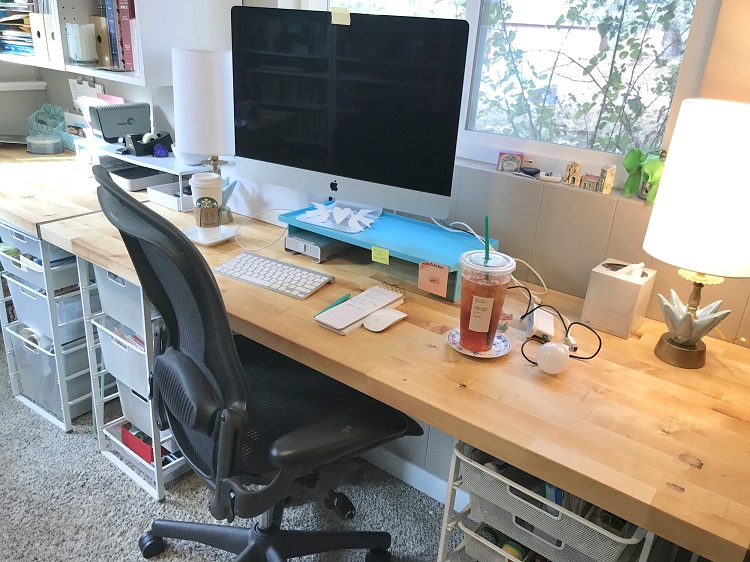
Keyboard and Mouse Position: The keyboard and mouse should be at a height that allows the user's elbows to rest comfortably at their sides and form a 90-degree angle. This helps prevent wrist strain and repetitive stress injuries.
The Impact of an Ergonomic Workspace
Investing in an ergonomic workspace can have a profound impact on an individual's productivity and overall health. Here are some key advantages of using an office desk with the appropriate height:

1. Enhanced Comfort and Productivity
An ergonomic desk setup ensures that employees are comfortable while working, reducing the likelihood of discomfort and distractions. When individuals are at ease, they can focus better on their tasks, leading to increased productivity.

2. Reduced Risk of Health Issues
Prolonged incorrect posture and uncomfortable desk heights can lead to various health issues, including back pain, neck strain, and carpal tunnel syndrome. By promoting proper alignment of the body, an ergonomic desk can help reduce the risk of such problems.

3. Boosted Energy and Morale
Physical discomfort and fatigue can drain an individual's energy and dampen their morale. A well-designed office desk that caters to ergonomic principles keeps employees energized and motivated throughout the day.
Creating a Healthy and Productive Workspace
Apart from selecting an appropriate desk height, there are other steps you can take to create a healthy and productive workspace:

1. Incorporate Movement
Encourage regular breaks and incorporate movement into the workday. Simple stretches and short walks can prevent stiffness and enhance focus.
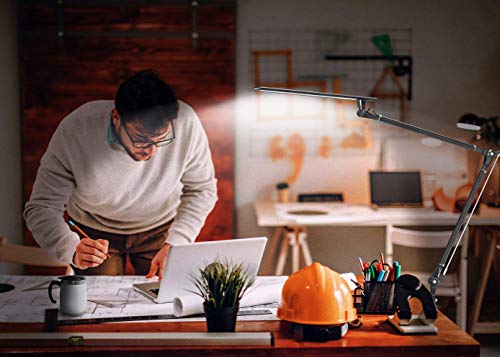
2. Proper Lighting
Good lighting is essential to reduce eye strain and fatigue. Position your desk near a window to access natural light or use adjustable lighting to avoid glare on your screen.

3. Personalize Your Space
Add some personal touches to your workspace with plants, photos, or artwork. A personalized environment can positively impact mood and creativity.
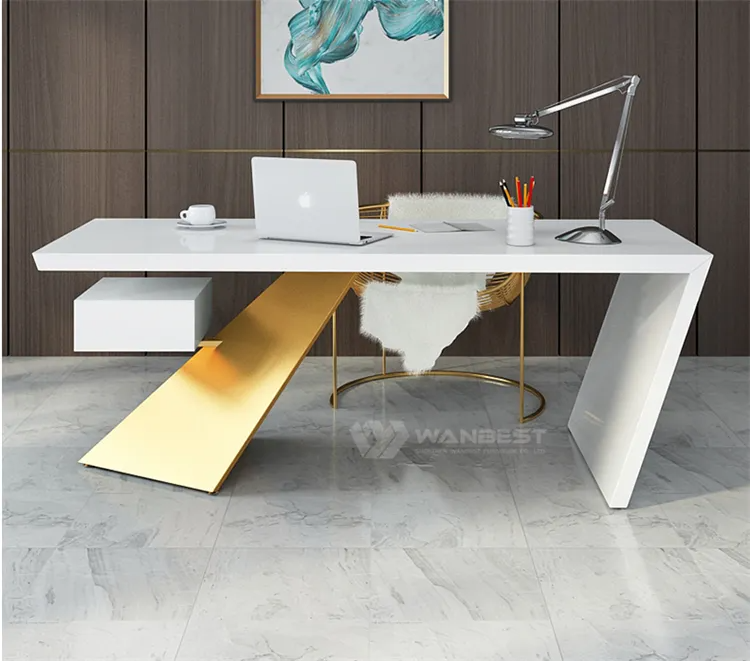
Conclusion
In conclusion, the typical height of an office desk falls within a specific range, but individual factors play a crucial role in determining the ideal desk height for each person. Prioritizing ergonomics in office settings can significantly enhance comfort, productivity, and overall well-being. By considering factors such as individual height, chair height, and the nature of work, one can create a workspace that fosters health and productivity. Remember, a healthy and comfortable workspace is an investment in your long-term physical and mental health.
- Blog Categories
- Industrial Knowledge
 WANBEST
WANBEST

















 WANBEST
WANBEST